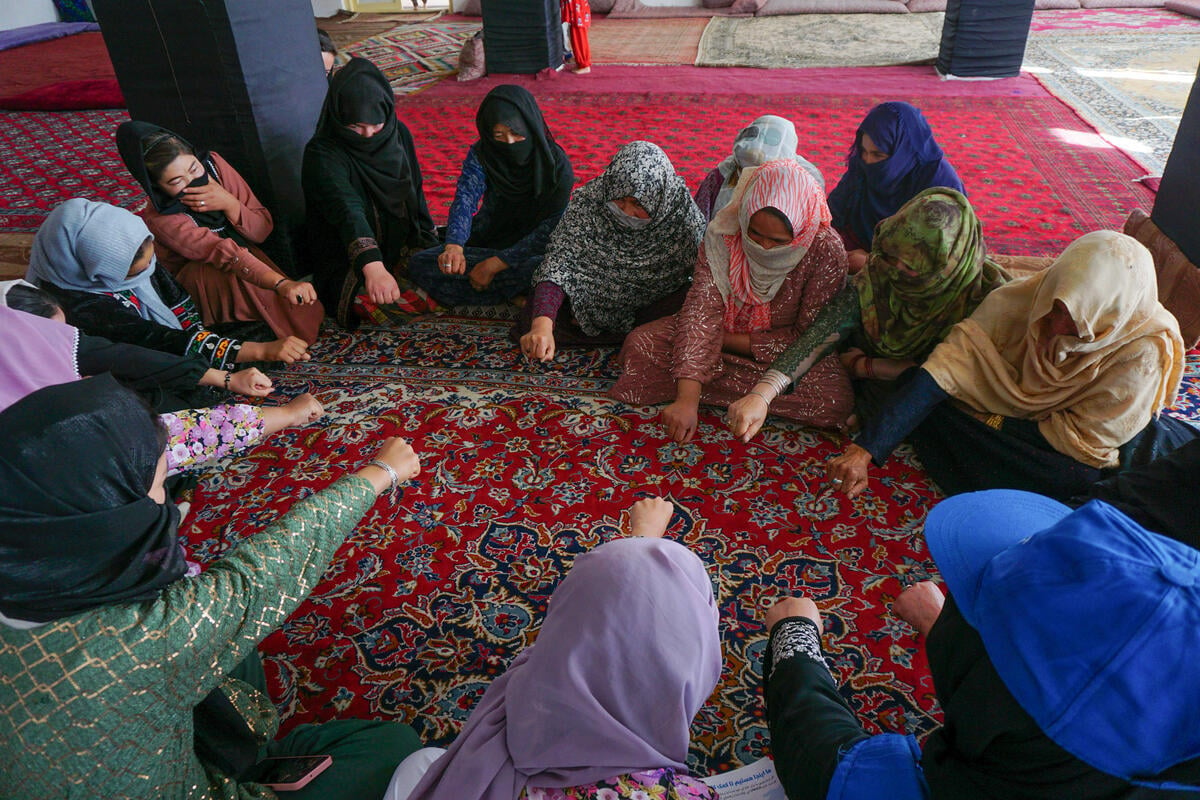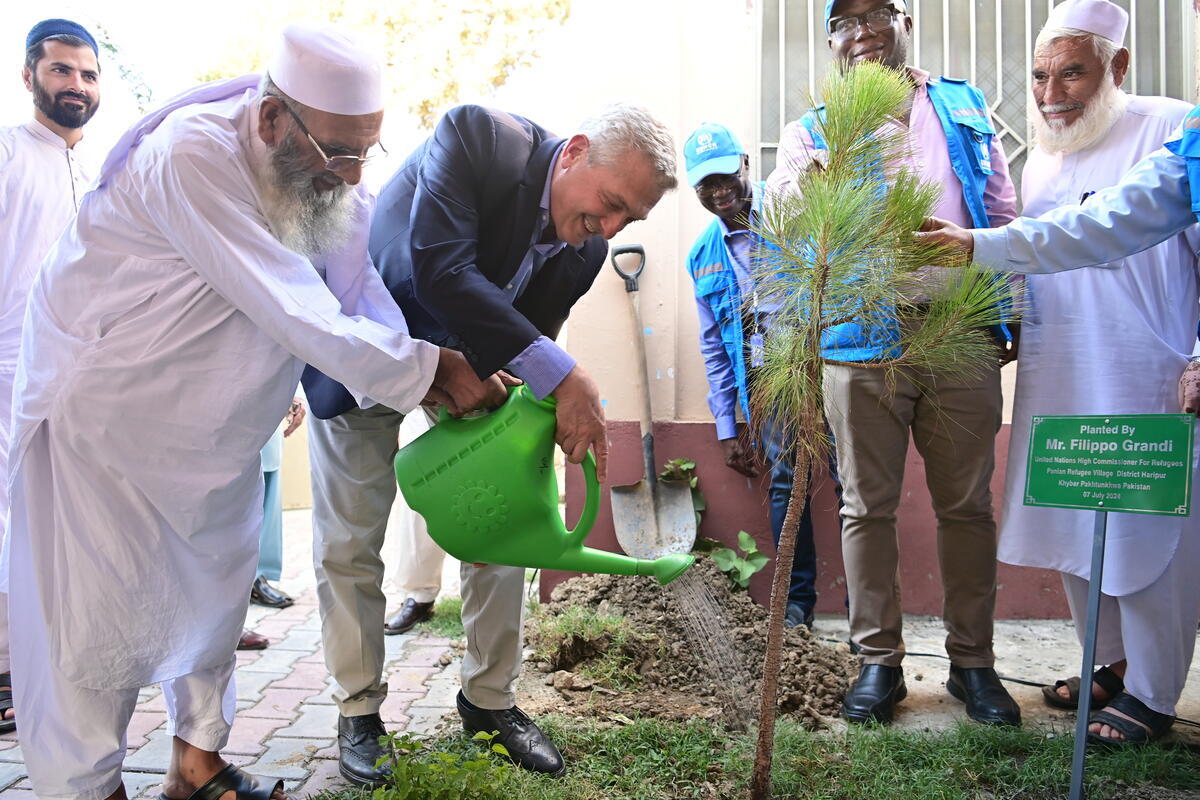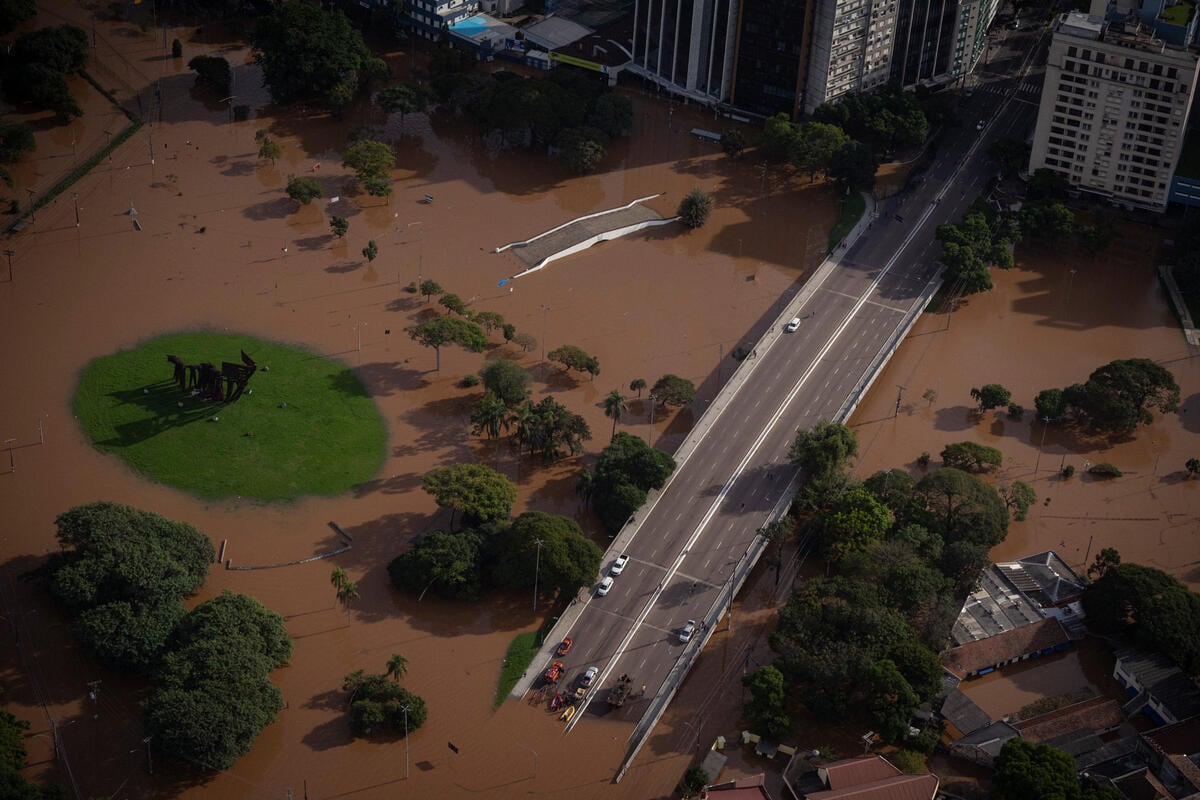Assisted repatriation should be offered to all Afghans - UNHCR
Assisted repatriation should be offered to all Afghans - UNHCR
16 July 2002
GENEVA - The UN refugee agency is now encouraging governments to offer repatriation assistance to all Afghans who may wish to return to their homeland. At the same time, UNHCR advises that Afghan asylum-seekers whose applications may have been on hold could now have their cases finalised.
In February, UNHCR had requested states outside the Afghan region to be cautious about launching voluntary repatriation initiatives, and to refrain from making a final decision when processing asylum claims by Afghans. This was because the situation in Afghanistan was still too unsettled and the future too uncertain.
UNHCR reviewed its positions following improvements in the situation in Afghanistan over the past five months. Many of the reasons which prompted people to flee only a year ago, under the previous Taliban regime, no longer exist. Today, a legitimate government is in place, and there is no longer a civil war raging in the central and northern parts of the country.
More than one and a quarter million Afghans have now gone home from neighbouring countries since the assisted voluntary return programme began on March 1, exceeding all expectations. The number of returns is still averaging about 8,000 per day, and UNHCR estimates some 2 million Afghan returns could take place this year alone. A total of 1,274,000 Afghans have gone home, including 1,168,000 from Pakistan, 96,000 from Iran and some 10,000 from Central Asian states. In Europe, meanwhile, the number of new Afghan asylum-seekers lodging claims has plummeted - by one-third during the first quarter alone.
In addition to the ongoing, massive returns, Afghanistan has advanced into a new political phase following last month's historic Loya Jirga that appointed a new Transitional Authority headed by President Karzai.
UNHCR is, therefore, recommending to governments that the time is now ripe for Afghans - wherever they are and at whatever stage they may be in the asylum process - to be offered the option of voluntary repatriation. Many Afghans, who themselves are keenly aware of the new changes in their homeland, may now wish to repatriate. However, they will obviously need help to do so.
UNHCR advises governments to give active counselling to Afghan asylum-seekers on possibilities for assisted return. If a significant number of Afghans take up the voluntary repatriation option and withdraw their applications, it would also help relieve asylum systems in a number of states.
UNHCR is simultaneously recommending the resumption of full status determination for Afghans already in the asylum system. However, the agency stressed that there are still valid reasons why certain individuals should be recognised as refugees. UNHCR, which has a major ongoing operation inside Afghanistan, can offer detailed advice to governments to help them identify who those people are. It is in these refugees' interests that their claims be recognised, so that they can get on with their lives in asylum countries rather than remain in a position of uncertainty.
UNHCR said it appreciates that host states are generally only envisaging voluntary return at this point. The agency noted that Afghanistan still faces serious problems. This includes violence in some parts of northern and central Afghanistan; the serious effects of a four-year drought; and continuing funding problems. The assassination of Minister for Public Works Hajji Qadir in Kabul earlier this month was a tragic reminder that complete political stability is not yet assured.
UNHCR has also advised governments that the return process for Afghans without protection needs should be phased, coordinated, orderly and humane.
In addition to offering Afghans who wish to return a realistic repatriation package, UNHCR has also recommended that states develop programmes which simultaneously contribute to the broader goal of Afghanistan's reconstruction, including vocational training.
UNHCR estimates around 150,000 Afghans applied for asylum in some 90 states - not including Iran and Pakistan - during the past three years alone. As many as half of them may still be awaiting a final decision on their case.









